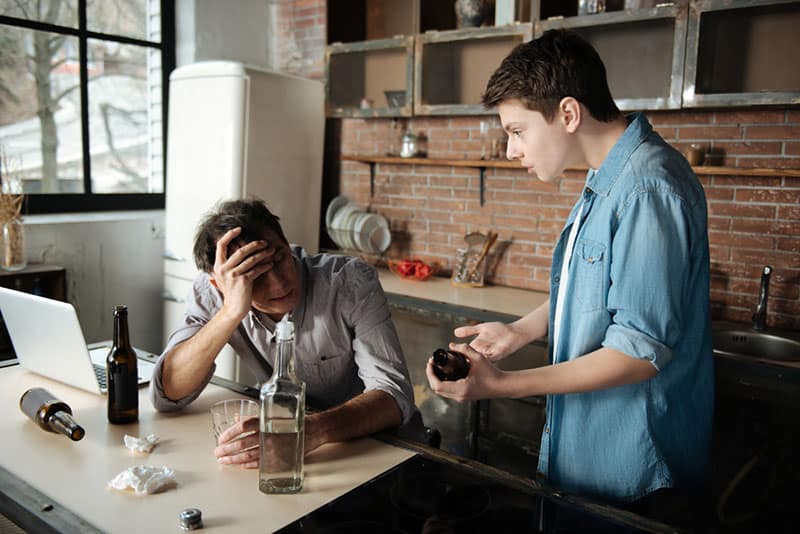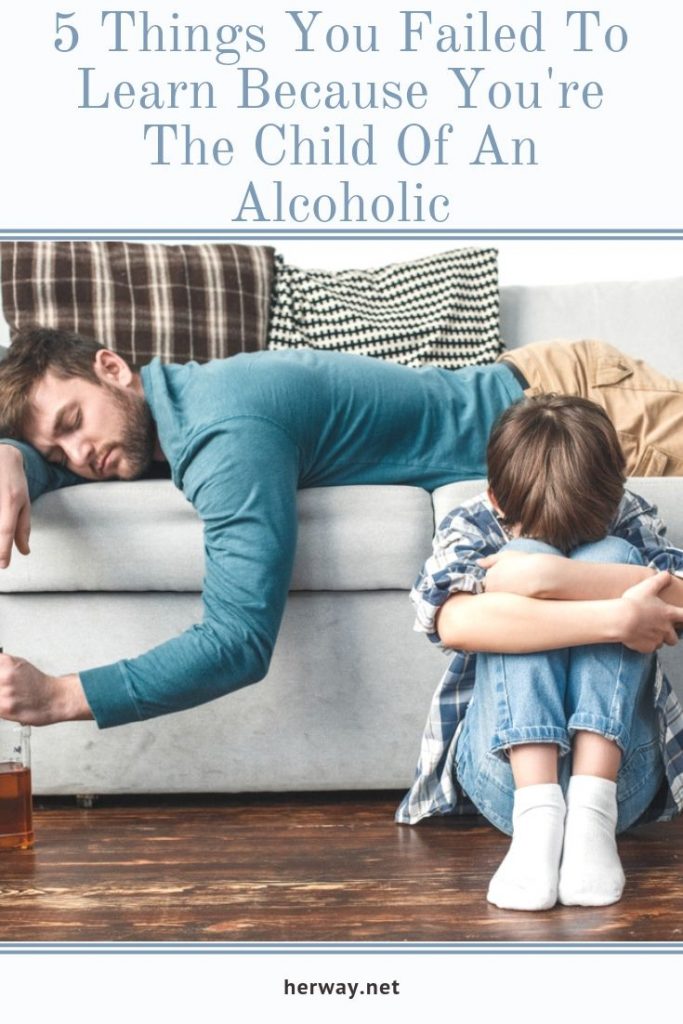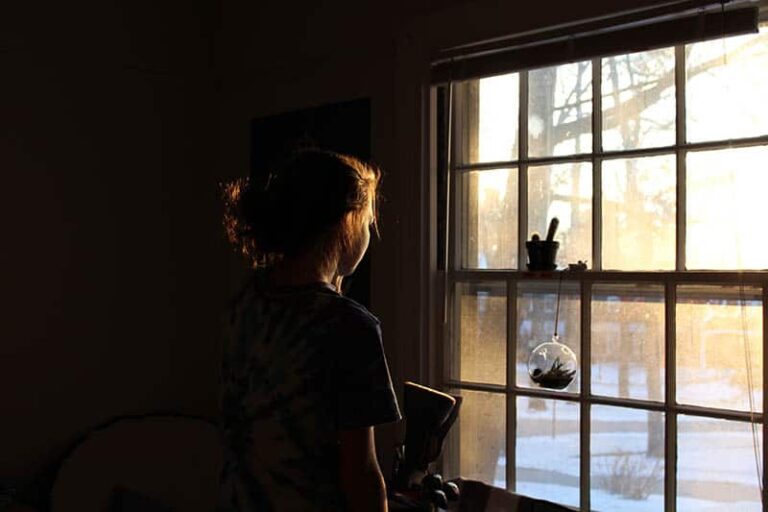5 coisas que não aprendeste porque és filho de um alcoólico
A tua infância fez de ti o que és hoje. As coisas que viste e viveste acompanham-te ao longo de toda a tua vida.
Now, that’s a beautiful thing if you remember your childhood in beautiful pictures; if you have happy memories which make your heart warm every time you think of them.
Mas o que é que acontece quando essas fotografias não são assim tão bonitas? O que acontece quando só nos lembramos da dor e do sofrimento causados por aqueles que supostamente nos deviam amar e proteger?
It’s something you’re carrying throughout your whole life. It’s something that can consume and destroy you.
Sadly, you’re blaming yourself for not being able to fight the demons haunting you from the past. But what you fail to see is that it’s not your fault. You weren’t supposed to have that crappy childhood, and you couldn’t choose the life to live. You got what you got—an alcoholic parent.
It’s not your fault because you were the victim of someone else’s mistakes and wrong moves. You were a victim, and you are a victim now.
And because of that, your life is not easy, and it never will be. You are not a quitter, and you don’t want to continue the vicious circle. You don’t want your kids to be faced with living a life they didn’t choose.
Living with trauma such as that raises many challenges you’re faced with, which other people don’t get. Every day is a battle for you. Every situation that others might find trivial can be disastrous to you. But you’re facing it. Every day. Every hour. Every minute.
Here’s what you failed to learn, and it’s not your fault:
1. Ninguém te ensinou a comportares-te

Normal social situations aren’t normal for you. A quiet Sunday evening in a normal house was about spending the evening together, playing games or watching TV.
Your Sunday evening was either being the victim of an aggressive outburst caused by alcohol or watching your parent fall asleep in the middle of the house with a bottle in their hand.
In the best-case scenario, you could walk away or hide so as not to look at the misery surrounding you. So, today when you simply don’t know how to react to some things that other people think are self-explanatory, it’s not your fault.
You didn’t have a role model to tell you what is right and what is wrong. You didn’t have anyone to look up to.
2. You never learned it’s impossible to keep everything under control

Quando era apenas uma criança, a sua casa era um caos controlado, especialmente se um dos seus pais era alcoólico.
A outra era tentar escondê-lo, tentando forçar o seu progenitor alcoólico a manter as aparências. Investia-se muita energia e força para manter o pai sóbrio calado.
Tinhas de viver com isso. Tinhas de passar a tua vida naquele caos controlado em que, por fora, te parecias com todas as outras famílias, mas, por dentro, eras tudo menos uma família.
As a result, now that you’re a grown-up, you’re trying to keep everything under control because you couldn’t control anything when you were little.
Not only are you trying to control your life, but you’re trying to control the lives of other people. You want to fix everything, so no one gets hurt. A lot of people can’t understand your behavior, and they think of you as a control-freak.
Nenhum deles compreende porque é que é assim. Nenhum deles consegue relacionar-se com a tua infância dolorosa e com o ambiente que te ensinou a ser assim.
3. Ninguém te ensinou a protegeres-te de pessoas perigosas

Falta-te apoio emocional. Nunca tiveste o amor que realmente merecias. Os teus pais nunca estiveram presentes quando precisaste deles. Eram egoístas e estavam ocupados com as suas próprias vidas, por isso ignoraram-no completamente.
Procuravas atenção de todas as formas possíveis. Talvez até fosses problemático porque, no fundo, tudo o que querias era que alguém te acolhesse e abraçasse. Tudo o que sempre quiseste foi que alguém te desse atenção.
As an adult, you hold on to every relationship you have, even if it’s abusive. Sadly, an abusive relationship is the only thing you were surrounded with when you were a child, so to you, it’s normal.
You’re afraid if you turn their back even on the people who take advantage of you, everyone in your life will eventually leave. And you don’t want to be left alone. Not again.
4. Não aprendeu a acreditar em si próprio ou a respeitar as suas necessidades

While growing up, your needs weren’t important. Even more, you probably watched one of your parents sacrifice their own life to help protect their partner and clean up the mess they made every time.
Esses padrões de comportamento que se desenvolveram numa idade precoce não podem ser desfeitos sem mais nem menos. Com o tempo, podem ser corrigidos, mas estarão sempre presentes, especialmente em situações emocionais em que as pessoas não se conseguem controlar facilmente.
Everyday interactions and relationships are especially hard for you. You always do what others tell you because you don’t believe in yourself. You seek acceptance, and you’re scared of conflict.
You hold on to chaotic and problematic people because that’s the surrounding you’re used to being in and because you respect everyone else except yourself and your needs.
5. Nunca aprendeste que és mais do que suficientemente bom

Quando era jovem, nunca nada do que fazia era suficientemente bom. Mais ainda, era constantemente confrontado com críticas e desilusões.
Your alcoholic parent never acknowledged or noticed anything you did. Even if they saw it, they walked all over you because they didn’t care.
You’re very ungrateful to yourself. You don’t respect yourself, and no matter what you do, it will never be enough for you. You even verbally insult yourself because you don’t believe in yourself; because you’re insecure.
There will always be those who will try to persuade you that you are everything opposite from what you’re saying about yourself and what you think about yourself, but those words won’t find their way to you.
How can you see yourself in a positive light, when everything you’re saying about yourself is true from your perspective?
Como é que se pode amar a si próprio quando nunca se teve a oportunidade de aprender a fazê-lo?








